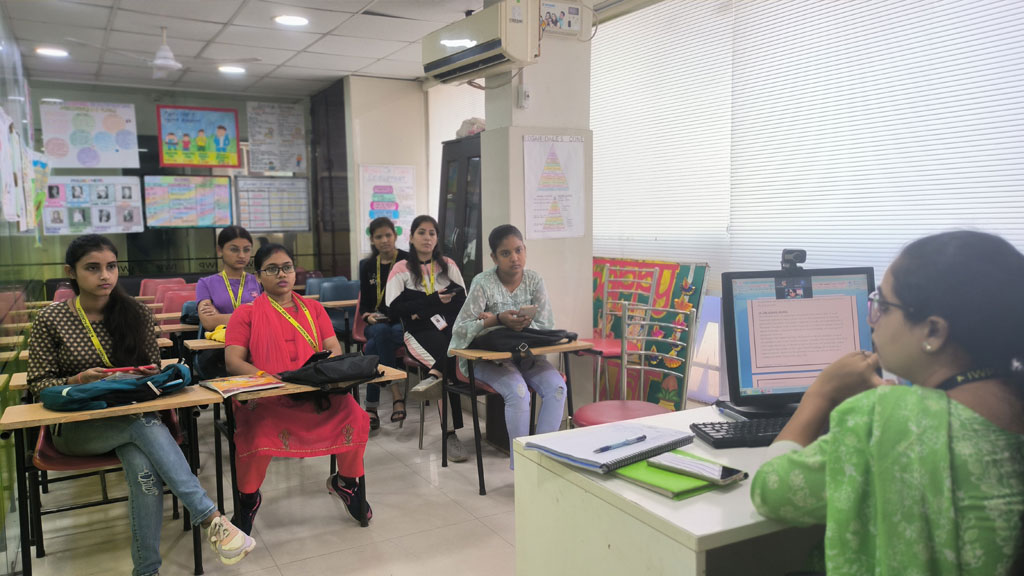Introduction:
In the realm of education, where the foundation for a lifetime of learning is laid, there exists a specialized field dedicated to the art of teaching young minds. Welcome to the world of Nursery and Primary Teacher Training (NPTT) courses, where educators are equipped with the skills and knowledge to create a nurturing environment for the formative years of a child’s education. In this blog post, we will explore the importance of NPTT courses, the skills they impart, and the pivotal role they play in shaping the futures of the youngest learners.
The Essence of NPTT Courses:
NPTT courses are designed to prepare educators for the unique challenges and joys of teaching children in their early years. These courses go beyond traditional teaching methods, focusing on the developmentally appropriate practices that create a foundation for lifelong learning.
Understanding Child Development:
At the core of NPTT courses is a deep understanding of child development. Educators learn about the physical, cognitive, social, and emotional milestones of children from infancy through early childhood. This knowledge forms the basis for creating age-appropriate learning experiences that cater to the evolving needs of young learners.
Effective Teaching Strategies:
NPTT courses emphasize the use of effective teaching strategies tailored to the developmental stages of children. From play-based learning to hands-on activities, educators are equipped with a diverse set of tools to engage and stimulate young minds. These strategies foster a love for learning and set the stage for a positive educational experience.
Curriculum Design for Early Learners:
Crafting a curriculum that is both engaging and educational is a specialized skill, and NPTT courses delve into the nuances of curriculum design for early learners. Educators learn to create a balanced and holistic curriculum that includes not only academic subjects but also social and emotional learning, arts, and physical activities.
Classroom Management in Early Childhood Settings:
Managing a classroom filled with energetic young learners requires a unique set of skills. NPTT courses provide educators with insights into effective classroom management techniques that promote a positive and inclusive learning environment. From creating routines to addressing behavior challenges, educators are prepared to foster a conducive space for learning.
Inclusive Education:
Inclusion is a cornerstone of NPTT courses, teaching educators to embrace and celebrate diversity in the classroom. Courses often cover strategies for catering to the individual needs of children with diverse learning styles, abilities, and backgrounds. This inclusive approach ensures that every child feels valued and supported in their educational journey.
Child Psychology and Communication Skills:
Understanding the psyche of young learners is essential for effective teaching. NPTT courses often include modules on child psychology, helping educators comprehend the motivations and emotions of their students. Additionally, strong communication skills are emphasized to build positive relationships with both children and their parents or guardians.
Early Childhood Assessment:
Assessing the progress of young learners requires a nuanced approach. NPTT courses guide educators in developing age-appropriate assessment methods that provide valuable insights into a child’s development without creating undue stress. These assessments aid in tailoring teaching strategies to meet individual needs.
Practical Teaching Experience:
NPTT courses often include practical teaching experiences, allowing educators to apply their knowledge in real classroom settings. These experiences provide invaluable insights, allowing educators to refine their teaching approaches and gain confidence in their ability to create enriching learning experiences for young children.
Continuous Professional Development:
The field of education is dynamic, and NPTT courses recognize the importance of continuous professional development. Educators are encouraged to stay abreast of the latest research and advancements in early childhood education, ensuring that their teaching practices remain current and effective.
The Impact of NPTT Educators:
Educators who have completed NPTT courses play a crucial role in laying the foundation for a child’s educational journey. Their impact extends beyond the classroom, influencing the social, emotional, and cognitive development of young learners. NPTT educators become architects of a positive and inspiring educational experience that shapes the futures of the children they teach.
Conclusion:
NPTT courses are a gateway to a specialized and rewarding career in early childhood education. As educators undergo training in child development, teaching strategies, and inclusive practices, they become catalysts for positive change in the lives of young learners. If you are passionate about fostering a love for learning in the earliest stages of a child’s life, enrolling in an NPTT course may be the first step toward a fulfilling and impactful career in education.

